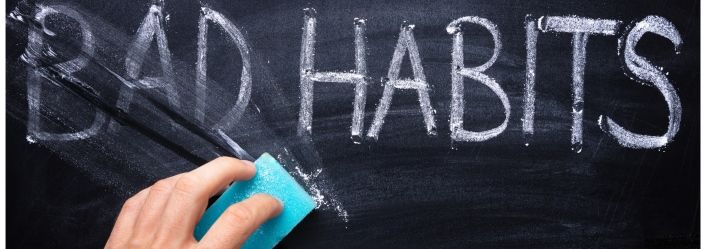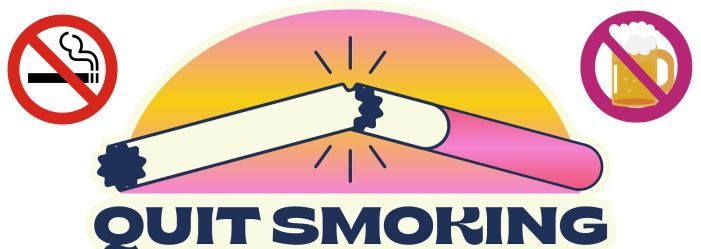Last Updated: October 19, 2023
Change Habits That Lead to Debt

Getting into debt is one of the easiest downward spirals any person can get caught up in. Everything in the Western world is geared toward getting people to spend money and promotes consumerism.
Furthermore, the ease of acquiring credit cards steers individuals toward spending money they do not have. The deck is stacked against consumers who cannot withstand the onslaught of credit cards, financing offers, and sales of expensive merchandise. Simply put, it is amazingly easy to get into an enormous amount of debt.
On another token, one of the hardest things to do in today’s world is to get out of debt. Sure there are classes, books, DVDs, seminars, and comprehensive guides on debt relief options meant to teach people how to climb out of the hole of debt, but in truth, all of these are useless if the habits of the individual debtors are not changed
Identifying Your Bad Spending Habits
The first step is taking an honest look at your spending over the past 2-3 months. Review credit card and bank statements to see where your money is going. Look for patterns of overspending.
Some habits to look out for:
- Impulse purchases - Do you frequently buy things you don't need?
- Convenience spending - Are you paying more for the sake of convenience like eating out or not comparison shopping?
- Subscription and recurring costs - Are you spending on subscriptions you don't use or need?
- Not tracking spending - Are you overspending without realizing it because you aren't monitoring expenses closely?
Once you've identified your bad spending habits, you can start making changes. The habits below are some of the most common areas people overspend. See which applies to you.
Five of the most common habits that should be changed to help a person get out of debt are listed below, but a look at one’s spending habits could reveal many, many more. Use the list below as a starting point in determining what bad spending habits you have. You might come to realize that you’re able to regain control of your debt situation much more easily than you think.
Eating Out
One of the leading causes of debt in the United States arises from the desire to eat great food. Many people think it is more convenient and less expensive to get great food by going to a restaurant. However, this perception is incorrect. For a family of four, the average bill at a sit-down restaurant such as T.G.I. Friday’s, Olive Garden, or Ruby Tuesday is somewhere between $45-60.
This amounts to about a third of the average weekly grocery bill for a family of six! The money spent on one meal at a restaurant could go toward paying one-third of a grocery bill, high-interest credit cards, or student loans. Reducing restaurant dining experiences from one or two per week to one or two per month would amount to enormous savings and a quicker climb out of debt.
Downloading Music on Your Phone or iPod
Although song downloads cost $0.99 or $1.29, the ease with how they download leads to overspending and feeds the “click and buy” mentality, increasing your amount of debt. Downloading ten songs may only cost $10 but over time it adds up and trains you to fulfill your instant satisfaction desires. This leads to little or no concern about how the songs will be paid for in favor of being satisfied.
The actual downloading of music might not affect your budget all that much but the act of downloading anything off the internet or anything utilizing the “click, buy, and pay later” mentality sure does. The key here is to train yourself not to buy things with one click. Break the habit of downloading and paying later and watch your debt slowly decrease. You will be surprised how much more you pay attention to what you are buying when you break this small habit.
Paying With a Credit Card
Perhaps the hardest habit for anyone to break when trying to get out of debt is using their credit card. A lot of people state they are using their card to get bonus points or cash back and they will pay it off at the end of the month. Unfortunately, most people do not actually pay off the card at the end of the month and their bills skyrocket because of it. If you are one of the good folks out there that actually does follow through, either you need to keep doing that or get rid of your cards so you do not charge something you cannot pay off.
A good way to get yourself out of debt is to get rid of your credit cards. That is right, cut them up and get rid of them. Of course, when you cut them up your debt remains, but getting rid of the cards will keep you from adding more debt to your total and will get you out of the habit of using them. The best way to pay for things is cash but if you do not like carrying money around, the only card you should have in your wallet or purse is a debit card which automatically withdraws money from your checking or savings account.
To stop overusing credit:
- Cut up your cards and go cash-only if you lack self-control with cards.
- Remove saved credit card info from online retailers to curb impulse spending.
- If you must use cards, use a debit card linked to your checking account so you can only spend what's available.
- Track every credit card purchase and pay off balances in full each month.
- Consider reducing your credit limit if you can't control your spending.
You will quickly learn that if you do not have any money in your wallet or in your bank account, you cannot buy something. If it is absolutely necessary that you buy the item you are looking at, then you need to adjust your budget so you can afford it. Not paying with a credit card will not only lower your debt and teach you to only spend the money you have, it will also make you think about those “must have but unnecessary” purchases and get the “need” purchases instead.
Smoking and Drinking

Regardless of what your stance on the issue is, a smoking and/or drinking habit is expensive. The truth is there is no cheap way for a person addicted to alcohol or nicotine to get the drug they crave. The good news is kicking either habit will have major implications for your health and your debt. If you have been trying to find a reason to quit either of these habits, take a look at the receipts from the liquor store or the tobacco shop and you will begin to see where a significant portion of your income is going.
Quitting cold turkey will have the greatest and quickest effect on your budget and your debt issues, but requires the most effort. Alternatively, weaning yourself off of tobacco or alcohol takes more time and causes strain on your budget, but is easier to do from an addiction standpoint. Saving over $100-150 a month because you do not smoke or drink will dramatically change your fiscal standing.
Leasing (Not a House)
Renting an apartment or a home should not be looked at in a negative light unless you are spending above your means. As a matter of fact, many Americans are switching back to renting because owning a home is just too costly in the current economy. Keeping living accommodations out of this, leasing, or renting anything is a big, bad, ugly, no-no for people looking to get out and stay out of debt.
If you take a moment to think about it, why do you want to pay $350 a month to lease a car when you can pay $250 for a car that you will own after all your payments are done? On the lease, you will have to turn the car in after three to five years; after you followed all the strict rules that go with a lease, and then you have to start renting all over again! On the other hand, you can buy your car, finance it, and in three to six years you will own it with no payments left to make.
The renting and leasing mentality can be applied to almost everything these days. You do not need to rent a television or a couch for two months from places like Rent-A-Center. Instead, save the money you need to buy one and be done with it. Leases are convenient little scams that cause you to pay out money each week or month for something that you can get yourself. If that television you want costs $50 a week to rent, save the $50 each week until you have enough money to buy the television.
Of course, it could take a while to get the television if you only save $50 a week but it will teach you to pick and choose the things you really want to have and will actually make you appreciate the items you buy when you actually get them. Who knows, after two months of saving, one of your neighbors will be getting rid of their flat-screen television, and the $400 you have saved up will take it off their hands.
Not Saving for Retirement
It's easy to only focus on current debts and expenses, but saving for retirement is crucial. Not developing the habit of regularly contributing to retirement accounts can seriously impact your long-term financial security.
- Take full advantage of employer retirement plans like 401(k)s, especially if they offer matching contributions
- Open an IRA if your employer doesn't offer a plan
- Automate retirement contributions so the money is taken out before you have a chance to spend it
- Start small if needed - even $50 per month can make a difference over time
FAQs
Conclusion
Changing long-held spending habits takes time, effort, and commitment. However, uncovering the little-known secrets of debt relief can provide new strategies and insights to enhance your journey out of debt, and being aware of your habits and intentionally working to change them is the only way to get control of your financial situation. Start by identifying your own bad habits around spending and credit use. Then, make a plan to address those habits one by one. Celebrate small wins and milestones along the way.
With focus and dedication, new, better money habits will become second nature over time. And developing intentional, mindful spending and saving habits will pay off exponentially in the years to come. The financial freedom and stability you gain will be more than worth the initial effort, especially when you arm yourself with essential debt relief facts that can inform your decisions and strategies.
If you need support in changing your financial habits, reach out for help, and consider exploring why using a debt relief program might be a beneficial step for your unique situation. Financial counselors can provide guidance tailored to your unique situation. You don't have to figure it all out alone. Take the first step today - your future self will thank you.
If you are struggling with overwhelming debt and want to explore your debt relief options, Pacific Debt Relief offers a
free consultation to assess your financial situation. Our debt specialists can provide objective guidance relevant information and support to help find the right debt relief solution.
✔ Accredited by Better Business Bureau with BBB A+ rating (4.93 rating and 1678 reviews)
✔ US News and World Reports and Bankrate ranked Pacific Debt Relief as one of “The Best Debt Relief Companies of 2024”
✔ 6.9 star rating by BestCompany.com (over 2379 client reviews)
✔ 4.8 star rating by TrustPilot based (over 1613 verified consumer reviews)
✔ ConsumerAffairs.com Accredited (over 544 verified reviews with an average rating of 5 stars)
✔ A Top 10 Rated Compan by TopTenReviews.com , ConsumersAdvocate.com and Top10debtconsolidation.com
✔ 4.6 star rating by Google (229 client reviews)
✔ 100% rating by SuperMoney (9 client reviews)
Reduce Your Credit Card Debt By Up to Half

BBB Reviews | 4.9/5.0 Rating









 Do Not Sell My Personal Information
Do Not Sell My Personal Information